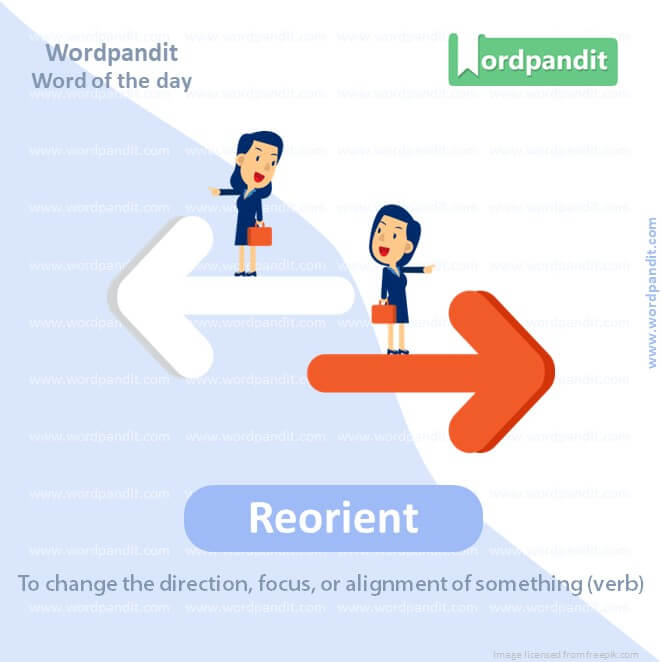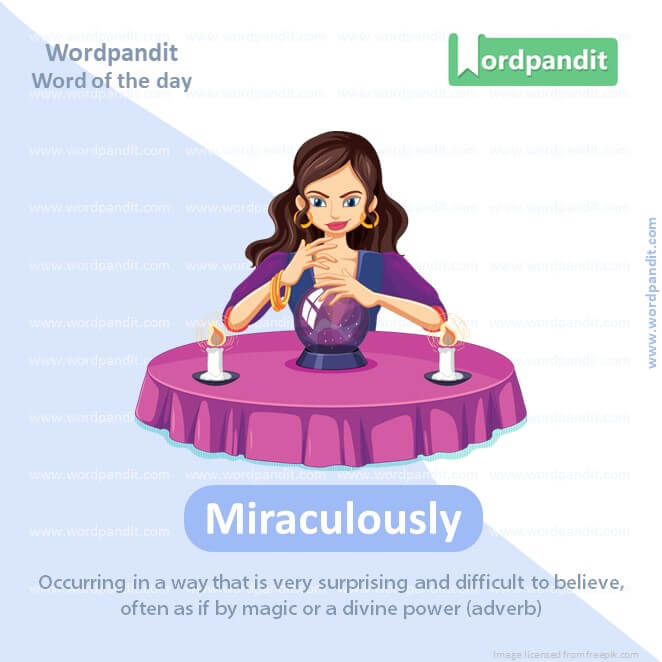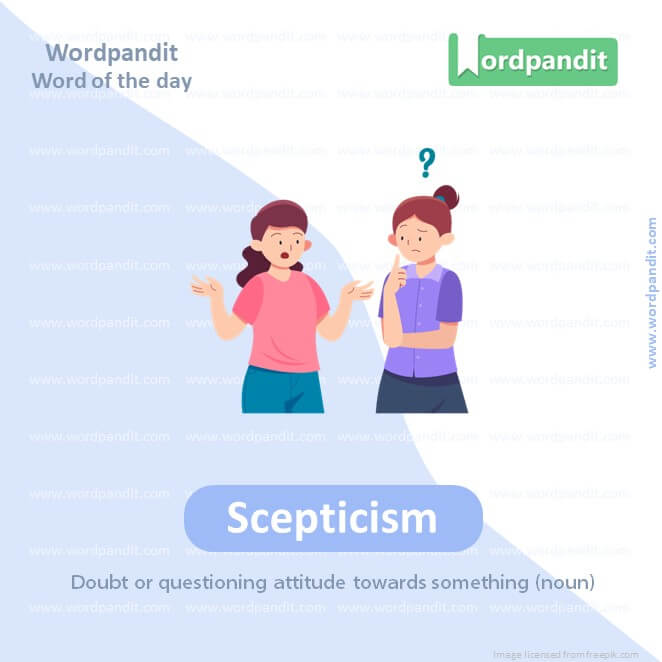Daily Vocabulary Words: Enhance Your Lexicon with Leading Newspapers & Publications
Welcome to the Daily Vocabulary section at Wordpandit!
Our mission is straightforward: to bring you essential vocabulary words featured in top newspapers and publications worldwide. By focusing on words you’ll encounter in renowned sources, we aim to help you enhance your vocabulary effectively and practically.
Our selection includes words from:
– The New York Times
– The Washington Post
– Scientific American
– BBC
– The Guardian
– Psychology Today
– Wall Street Journal
– The Economist
– The Hindu
– The Times of India
– The Economic Times
– Hindustan Times
– Live Mint
– The Indian Express
– And many more.
We are committed to your vocabulary development. Simply visit this section regularly and explore the daily posts. This is your go-to repository for commonly used words, providing significant practical benefits by familiarizing you with vocabulary from the leading publications listed above.
Make it a habit to visit our website daily and expand your lexicon with words from top newspapers and publications. (edited)
WORD-1: Unambiguous
CONTEXT: The outcome of the 18th general election is an unambiguous reiteration by the people of that tenet. As the verdict unfolded on June 4, the Bharatiya Janata Party (BJP) fell short of an absolute majority in the Lok Sabha, which is a far cry from its claims made during the campaign.
SOURCE: The Hindu
EXPLANATORY PARAGRAPH: Unambiguous is like when you tell someone exactly what you want for your birthday, so there’s no confusion. It means being very clear and easy to understand.
MEANING: Clear and precise; having only one possible meaning (adjective).
PRONUNCIATION: un-am-BIG-yoo-uhs
SYNONYMS: clear, explicit, definite, straightforward, clear-cut, unequivocal, plain
USAGE EXAMPLES:
1. Her instructions were unambiguous, so everyone knew what to do.
2. The sign was unambiguous about where to go.
3. His message was unambiguous and left no room for doubt.
4. The rules were unambiguous and easy to follow.
WORD-2: Conciliatory
CONTEXT: The verdict of the people cannot be clearer than this — it wants the BJP to be more conciliatory and less confrontational towards the political aspirations of various communities and regions of India.
SOURCE: The Hindu
EXPLANATORY PARAGRAPH: Conciliatory is like when you say sorry to a friend after a fight and bring them a cookie to make peace. It means trying to make someone feel better or to fix a disagreement.
MEANING: Intended to placate or pacify; making peace (adjective).
PRONUNCIATION: kon-SILL-ee-uh-tor-ee
SYNONYMS: pacifying, appeasing, peacemaking, soothing, calming, placatory, mollifying
USAGE EXAMPLES:
1. She used a conciliatory tone to resolve the argument.
2. His conciliatory gesture helped mend their friendship.
3. The leader’s conciliatory speech eased tensions.
4. They adopted a conciliatory approach to negotiations.

WORD-3: Reorient
CONTEXT: The BJP must heed that message in a democratic spirit, and reorient itself to the reality of the reemergence of coalition politics after 10 years.
SOURCE: The Hindu
EXPLANATORY PARAGRAPH: Reorient is like when you turn a map around to find the right direction. It means changing the direction or focus of something.
MEANING: To change the direction, focus, or alignment of something (verb)
PRONUNCIATION: ree-OR-ee-ent
SYNONYMS: redirect, realign, refocus, reposition, readdress, adjust, shift
USAGE EXAMPLES:
1. The company had to reorient its strategy to meet new market demands.
2. He decided to reorient his career towards teaching.
3. She reoriented the map to find the right path.
4. The organization reoriented its goals to better serve the community.

WORD-4: Withering
CONTEXT: The overwhelming charisma and style of Mr. Modi served the party well in 2014 and 2019, but the same factors were corroding the party’s organisational strengths and withering its regional and local leadership.
SOURCE: The Hindu
EXPLANATORY PARAGRAPH: Withering is like when a flower shrivels up and loses its color because it hasn’t been watered. It means to cause something to become weak or dry up, or to make someone feel small with a look or words.
MEANING: Causing someone to feel humiliated or criticized sharply; or, gradually decaying or weakening (adjective)
PRONUNCIATION: WITH-er-ing
SYNONYMS: scornful, devastating, shriveling, wilting, scorching, decaying, weakening
USAGE EXAMPLES:
1. She gave him a withering look that made him feel small.
2. The plant was withering due to lack of water.
3. His withering remarks left her speechless.
4. The heat was withering, making everyone feel exhausted.
WORD-5: Mongering
CONTEXT: The outcome of 2024 should also put to rest the unnecessary fear mongering about EVMs, though serious and urgent steps are required to reinforce public trust in the electoral process.
SOURCE: The Hindu
EXPLANATORY PARAGRAPH: Mongering is like when someone spreads rumors to make people worried or scared. It means promoting or spreading something, often something negative.
MEANING: Promoting or spreading something undesirable (verb).
PRONUNCIATION: MAWN-ger-ing
SYNONYMS: spreading, promoting, fomenting, inciting, peddling, propagating, stirring
USAGE EXAMPLES:
1. He was accused of fear-mongering before the election.
2. The news was criticized for rumor-mongering.
3. They are mongering hate with their speeches.
4. The campaign was full of scandal-mongering.

WORD-6: Miraculously
CONTEXT: This balance was made possible in part by an INDIA alliance, especially in UP, that miraculously held together.
SOURCE: Indian Express
EXPLANATORY PARAGRAPH: Miraculously is like when something amazing happens that you didn’t think was possible, like finding your lost toy in a place you already looked. It means something very surprising and wonderful happens.
MEANING: Occurring in a way that is very surprising and difficult to believe, often as if by magic or a divine power (adverb)
PRONUNCIATION: mih-RAK-yuh-lus-lee
SYNONYMS: amazingly, astonishingly, wonderfully, incredibly, surprisingly, supernaturally, extraordinarily
USAGE EXAMPLES:
1. She miraculously recovered from the illness.
2. The lost dog was miraculously found after a week.
3. The car miraculously avoided the accident.
4. They miraculously escaped unharmed.

WORD-7: Nauseous
CONTEXT: The air of despondency, the suffocating shadow of authoritarianism, and the nauseous winds of communalism have, at least for the moment, lifted.
SOURCE: Indian Express
EXPLANATORY PARAGRAPH: Nauseous is like when you feel sick to your stomach and think you might throw up. It means feeling very uncomfortable and like you might be sick.
MEANING: Affected with a feeling of sickness in the stomach that feels like sea sickness (adjective)
PRONUNCIATION: NAW-shus
SYNONYMS: sick, queasy, ill, unwell, nauseated, dizzy, woozy
USAGE EXAMPLES:
1. The smell of the garbage made her feel nauseous.
2. He felt nauseous after eating too much candy.
3. The boat ride left him feeling nauseous.
4. The medication made her feel less nauseous.
WORD-8: Omnipotence
CONTEXT: He made this election about himself: His performance, his omnipotence and omniscience, and his ideological obsessions.
SOURCE: Indian Express
EXPLANATORY PARAGRAPH: Omnipotence is like when a superhero can do anything and has all the power in the world. It means having unlimited power and being able to do anything.
MEANING: Having unlimited power and able to do anything (noun).
PRONUNCIATION: ahm-NIP-uh-tuhns
SYNONYMS: almightiness, all-powerfulness, supremacy, dominance, sovereignty, invincibility, authority
USAGE EXAMPLES:
1. The ancient gods were believed to have omnipotence.
2. The CEO’s omnipotence
within the company was unquestioned.
3. He dreamed of having omnipotence and changing the world.
4. The king ruled with a sense of omnipotence.
WORD-9: Indomitable
CONTEXT: Modi is, for the moment, not the indomitable vehicle for History, or the deified personification of the people. Today, he is just another politician, cut to size by the people.
SOURCE: Indian Express
EXPLANATORY PARAGRAPH: Indomitable is like when you keep trying to build a tower even though it keeps falling down, and you don’t give up. It means being very strong and not able to be beaten.
MEANING: Impossible to defeat or discourage (adjective).
PRONUNCIATION: in-DOM-it-uh-bul
SYNONYMS: unbeatable, invincible, resilient, unyielding, steadfast, unconquerable, determined
USAGE EXAMPLES:
1. Her indomitable spirit inspired everyone.
2. The team showed indomitable courage during the game.
3. He faced every challenge with indomitable determination.
4. The indomitable mountain climber reached the summit despite the odds.

WORD-10: Scepticism
CONTEXT: It has to be said, this is a tribute to the dogged persistence of the Opposition that has battled the full might of being targeted by the government, a hostile media, and deep scepticism going into the election.
SOURCE: Indian Express
EXPLANATORY PARAGRAPH: Scepticism is like when you don’t believe a story your friend tells you because it sounds too good to be true. It means not being easily convinced and needing proof.
MEANING: Doubt or questioning attitude towards something (noun)
PRONUNCIATION: SKEP-ti-siz-um
SYNONYMS: doubt, disbelief, suspicion, cynicism, mistrust, questioning, wariness
USAGE EXAMPLES:
1. There was a lot of scepticism about the new plan.
2. She met his claims with scepticism.
3. His scepticism about the project proved to be well-founded.
4. The theory was greeted with scepticism by the scientific community.
Vocabulary SSC
Navigating the path to success in competitive examinations like the Staff Selection Commission (SSC) triggers a keen focus on ‘vocabulary SSC’. This collection of words, often prominent in SSC examinations, holds paramount importance, and forms a significant part of a candidate’s linguistic preparation. However, mastering ‘vocabulary SSC’ is a process that requires deliberate strategy and dedication.
To begin the journey with ‘vocabulary SSC’, a structured learning regime is key. Break the learning process into manageable chunks. Concentrate on a set number of words each day. This steady, consistent approach reduces the risk of burnout and enhances long-term retention of vocabulary.
The strategic use of memory aids can significantly boost the learning of ‘vocabulary SSC’. Utilize flashcards, memory apps, or even create personal mnemonics to help remember each word and its meaning more effectively. Associating a word to a personal event or object creates a lasting mental connection, making recall easier.
To truly master ‘vocabulary SSC’, it’s crucial to engage with the words in different contexts. Incorporating the words into daily reading and writing practices provides exposure to their usage in varied situations. This practical application reinforces the understanding of ‘vocabulary SSC’, enhancing the ability to employ these words accurately in the exam setting.
Regular revision is a must when preparing ‘vocabulary SSC’. Spaced repetition, interspersing the study with regular breaks, and regularly revisiting the words learned, ensures the words stay firm in your memory, ready to use when needed.
In essence, preparing ‘vocabulary SSC’ is an exercise in action-oriented constant learning. Strategic use of learning tools, practical application, and regular revision are key aspects of getting a grip on ‘vocabulary SSC’. As you stride through this process, you inch closer to acing your SSC examinations with an enriched vocabulary and boosted confidence.













